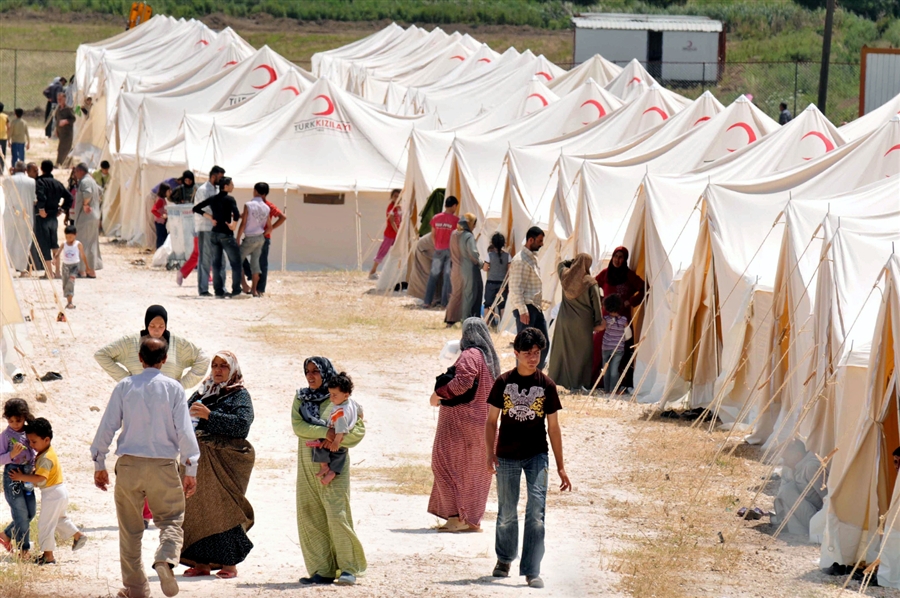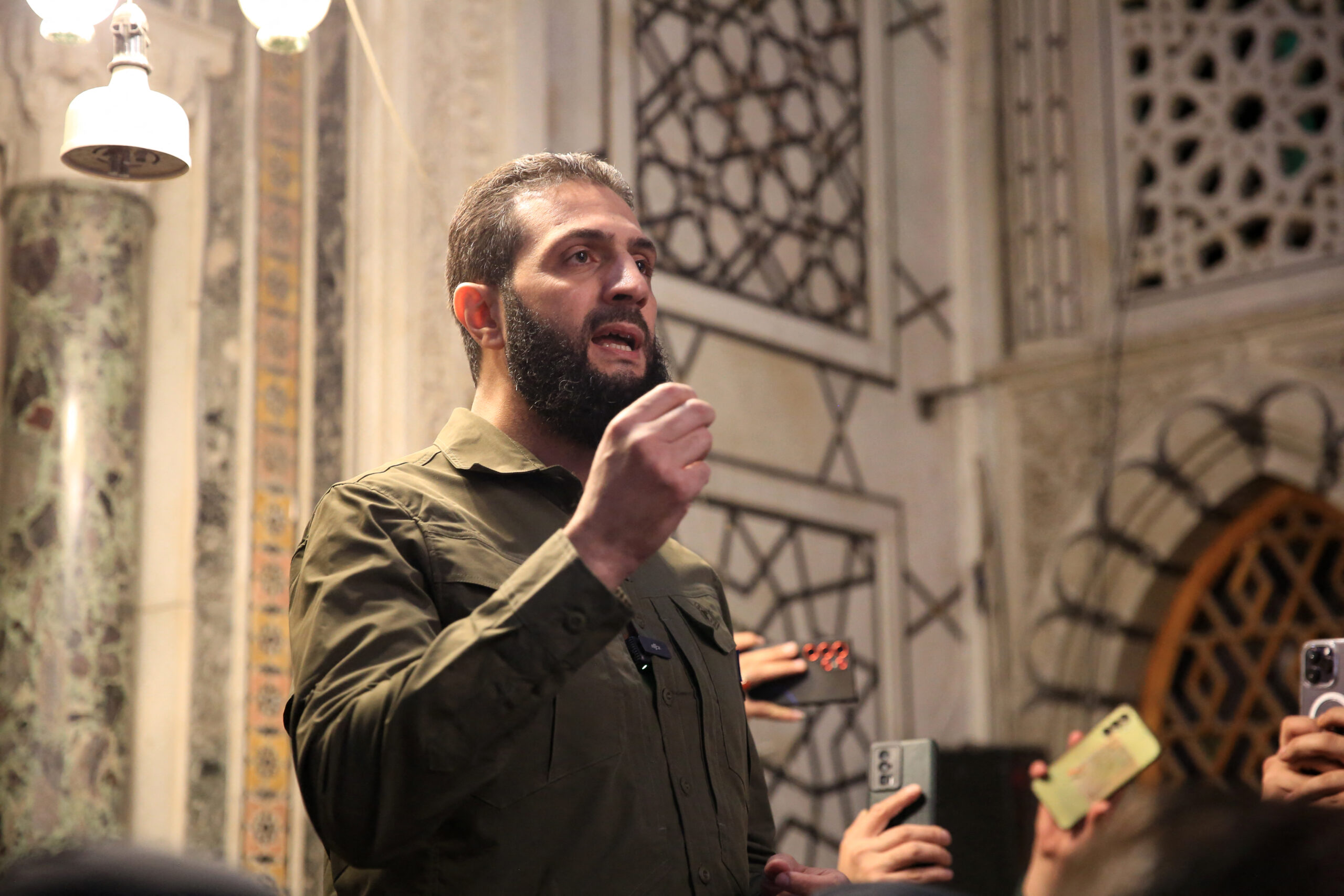Brussels – The European Union is smiling at the end of the regime of Bashar al-Assad, toppled in a sudden 12-day offensive by rebel groups led by the Islamist militia Hayat Tahrir al-Sham (HTS). And with a good dose of optimism, leaders of EU institutions speak of “an opportunity for freedom and peace” for Syria. “Not without risks,” warns Ursula von der Leyen.
The astonishing fall of Assad and his flight to Moscow, ending a bloody dynasty of more than half a century, came at the hands of HTS and several armed groups united under the name Syrian National Army. The leader of HTS, Abu Mohammed al-Jolani, appointed former Prime Minister Mohammed Ghazi al-Jalali to oversee state institutions and guarantee the continuity of social services until the end of the transition period. On the national television network on Sunday afternoon (Dec. 8), a rebel spokesman said, “To those that bet on us and to those who didn’t, to those one day who thought we were broken, we announce to you the victory of the great Syrian revolution after 13 years of patience and sacrifice.”

Thirteen years of atrocious civil war, which killed at least 300,000 people and made 100,000 disappear. Half the country – about 12 million people – have been displaced from their homes, and about 5.4 million have sought refuge abroad. Most are in neighboring countries, Turkey, Lebanon, and Jordan. However, according to estimates by the United Nations High Commissioner for Refugees (UNHCR), European countries are hosting more than one million Syrian asylum seekers.
This is also why the reactions differ on both sides of the Atlantic. In Washington, where the Islamist group once known as the al-Nusra Front is considered a terrorist organization, outgoing President Joe Biden warned that the US “will not allow ISIS to reestablish its capabilities in Syria.” His counterpart-elect, Donald Trump, pulled out without mincing words: “The US should have nothing to do with this. This is not our fight. Let it play out,” the next White House tenant said in a post on his X account.
In Brussels, concern is palpable, and comments are more cautious. EU leaders try to send a signal to al-Jolani, trying to reach out to him. “Europe is ready to support safeguarding national unity and the rebuilding a Syrian state that protects all minorities,” said Ursula von der Leyen. “The EU is ready to work with the Syrian people for a better future,” she was echoed by the newly appointed president of the European Council, António Costa. For Kaja Kallas, who took over from Josep Borrell as EU High Representative for Foreign Affairs, “the end of the Assad dictatorship is a positive and long overdue development,” which “also shows the weakness of Assad’s supporters, Russia and Iran.”
The cruel Assad dictatorship has collapsed.
This historic change in the region offers opportunities but is not without risks.
Europe is ready to support safeguarding national unity and rebuilding a Syrian state that protects all minorities.
We are engaging with European and…
– Ursula von der Leyen (@vonderleyen) December 8, 2024
In the Middle East, worn down by local and regional tensions, where the conflict between Israel and Hamas has acted like fuel on fire, the biggest concern of European countries is the risk that a humanitarian catastrophe that began with the arrival of the third millennium and never really stopped “gangrenizes.” In the face of the escalation between Israel and Hezbollah in Lebanon and the potential consequences for the management of Syrian refugees in the south of the country, in recent months, Brussels has been working on a hypothetical pragmatic revision of the EU Strategy on Syria aiming to create the conditions for the “safe, voluntary, and dignified repatriation” of Syrian refugees, however without “legitimizing in any way the regime” of Assad.

Hayat Tahrir al-Sham (HTS) leader, Abu Mohammed al-Jolani, holds a speech in Damascus, 8/12/2024 (Photo by Aref TAMMAWI / AFP)
The coup by Islamist rebels in Damascus changed everything, and European leaders are watching closely to see if al-Jolani keeps his promises of a peaceful transition. In the past, the HTS militia was affiliated with al-Qaeda, only to distance itself from it in 2016. It is currently the most powerful rebel faction in Syria and – before the offensive that toppled Assad – already controlled a large territory in Idlib province, bordering Turkey. There have been reported serious human rights abuses in the area, including executions of people accused of affiliation with rival groups and on charges of blasphemy and adultery.
In a statement published yesterday, the NGO Human Rights Watch reminded everyone that “Non-state armed groups operating in Syria, including Hayat Tahrir al-Sham and factions of the Syrian National Army that launched the offensive on November 27, are also responsible for human rights abuses and war crimes.” In short, it is uncertain whether post-Assad Syria is the ‘safe country’ that European capitals would like so that they can facilitate a return home for the millions of refugees from the civil war. The French foreign minister, Jean-Noel Barrot, is aware of this and told France Info he assured that France’s support for the political transition in Syria “hinges on respect for the rights of women, minorities, and international law.”
English version by the Translation Service of Withub








![Un campo coltivato [foto: imagoeconomica]](https://www.eunews.it/wp-content/uploads/2025/04/campo-coltivato-120x86.png)
![[foto: Wikimedia Commons]](https://www.eunews.it/wp-content/uploads/2025/04/alzheimer-120x86.png)